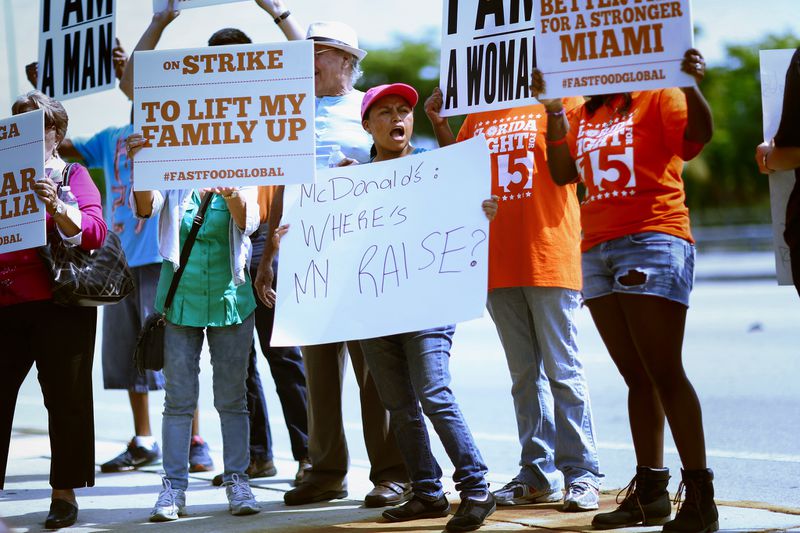Potential Gradual Minimum Wage Raise in Florida to $15
McDonald’s employees standing outside a McDonald’s restaurant in Miramar demanding a pay increase to $15 an hour.
December 20, 2019
As of December 19th, 2019, the ballot proposal to gradually increase the Florida minimum wage to $15 by 2026 passed through Florida Congress. Floridians will be able to vote on the prospective wage increase in November 2020 as Amendment 2.
The current minimum wage in Florida is $8.46, which is nearly a dollar more than the national minimum wage. The minimum wage for tipped workers, however, is $5.44. The approximately seven dollar increase would take form as a dollar being added to the minimum wage each year until the total reaches $15. Both Governor Ron DeSantis and the Florida Chamber of Commerce are against the proposal.
According to Edie Ously, Vice President of Public Affairs for the Florida Chamber, “This ballot measure will actually hurt the very people its proponent claims it will help. In fact, Florida could very likely lose nearly half a million jobs by 2026, and we’ve seen estimates that are higher than that.” The Florida Restaurant and Lodging Association states that the increase in minimum wage could force employers to reduce work hours, cancel plans of expansion, or even introduce automation wherever available.
The proposed Fair Wage amendment was provided by Morgan and Morgan attorney John Morgan, the same man who led the drive to legalize medical marijuana in 2016. “Now, the sprint to reverse decades of inequality really starts– and let me tell you– this is going to be a tough challenge” Morgan stated, also saying that he felt the proposal would pass because “Floridians are compassionate and know that giving every worker a fair wage means not only lifting up those who would directly benefit, but lifting up our broader economy when hardworking folks have more money to spend.”
If the amendment passes, Florida will join the list of states seeking to gradually increase the minimum wage to $15, which includes New York, California, and Washington D.C. However, the question remains of whether the wage increase will aid Florida citizens or further impede economic equality.


